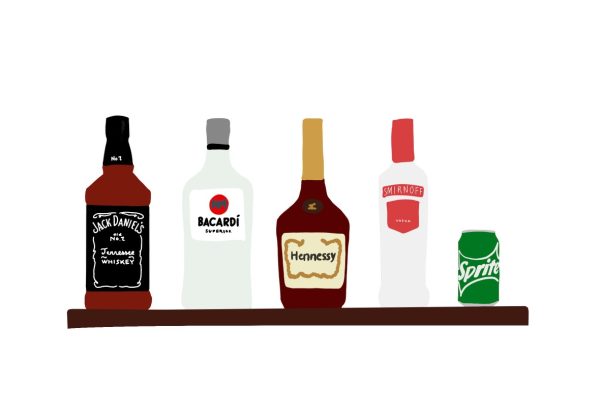
According to The Princeton Review, Tulane University is the school with the highest rate of hard liquor consumption in the United States. It is no secret that Tulane consistently ranks as one of the country’s biggest party schools, and as this title suggests, drinking plays a huge role in campus culture. In 2018, 82% of Tulane students reported drinking within the past 30 days, while only 49% of college students nationwide reported drinking in the past month.
It is completely normal for students to drink during college, but shouldn’t it also feel more normal for students to abstain from drinking? Tulane students must make an active effort to embrace spaces and activities that do not center alcohol.
A solution that can be incredibly rewarding for students is dabbling in sober curious or sober-ish practices. As social worker Chris Nixon describes it, “The goal is to explore your relationship with alcohol, as well as the health and wellness perks that may stem from shifting your focus away from the bottle.”
However, students experimenting with sobriety often find it hard to share their experiences, since they will often have to explain why they are choosing to not drink. Explaining sobriety can bring up feelings of shame or memories of trauma, but for some, sobriety simply promotes a higher quality of life.
Sobriety offers numerous benefits: saved money, no hangovers, less risky behavior and improved mental health. These benefits have led to the new wave of sobriety.
Trendcasters believe that the wellness community has inspired this new wave of sobriety, attracting health-conscious Gen Z and millennials. Sobriety looks different now than it did in the past. Plenty of people have pursued a sober-curious lifestyle. This can vary at the individual level, but for most, it resembles scaling back drinking and practicing mindfulness when consuming alcohol.
An increased number of sober lifestyle influencers have shown social media users that they can still enjoy their life sans alcohol. New solutions have arisen quickly. Mocktails are trending across all social media platforms; supermodel Bella Hadid recently launched her own line of mocktails entitled Kin Euphorics. Kin’s goal is to provide a “non-alcoholic, functional beverage, designed using ingredients that nourish mind and body.”
With the increase in sober lifestyles, how can we transition Tulane’s culture to promote and foster sober curiosity? How can students dip their toes in sobriety or uplift friends who may struggle with their relationship to alcohol? On a campus like Tulane, it can feel impossible to be sober. Students often center their social calendars around alcohol, and there always seems to be a reason to drink.
To help combat this culture, students should refrain from scrutinizing why others may not be drinking, as well as being open to events where alcohol is not the focal point.
Drinking is completely normal, but it would do a lot of people some good to reevaluate their relationship with alcohol for both themselves and peers. It might be time to reevaluate the idea that “it’s not alcoholism until you graduate” and see what a sober curious lifestyle could look like.
Alcohol will forever be a part of the college experience, but it is time for Tulanians to embrace the “new sobriety wave” movement and see what that could look like on an individual level in college. Alcohol is not the devil, but it is not healthy for everyone and should not be seen as the expectation for social gatherings.



Leave a Comment